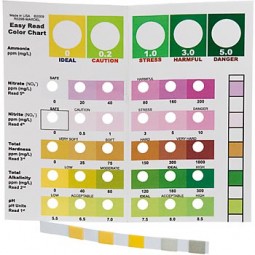Free Water Test Strip
Do I have hard water? Do I need a water softener? Morton Salt is offering a free water test strip to help you find out if you have any hard water issues. Just run the test strip under water to evaluate your water hardness.
More than 3 out of every 4 homeowners are plagued by the effects of hard water. Hard water can be tough on just about everything…from your pipes, to your appliances, to your clothes. Even your budget. But there is an easy solution for protecting your family and house from the harmful effects of hard water – Morton System Saver II Water Softening Pellets.
Hard Water 101 from Morton Salt
Do you Live in a Hard Water Area?
Three out of four homes in the U.S. are affected by hard water. Check the map below to see if you have hard water in your home.
What Makes Water Hard?
Rain water begins as soft water, but as it flows through lakes, rivers and streams it absorbs hardness minerals such as calcium and magnesium. Over time this creates hard water. While these minerals aren’t harmful to your health, they do affect the properties of water and its effectiveness for washing, cleaning and bathing.
Why Hard Water is Hard on You.
Hard water can turn the simplest of household tasks into hard work for you and your appliances. Glassware and dishes are left with spots. Clothes appear duller and feel coarser. Bathroom fixtures develop unsightly film. Soaps and laundry detergents don’t lather as well. Even your skin and hair don’t feel as clean. Hard water is also tough on appliances, especially on washing machines and hot water heaters, causing them to wear out up to 30% faster.
Why Soft Water is Such an Advantage around the House.
Your clothes, pipes and appliances will be better thanks to soft water. Less soap is required to get clothes and dishes clean. Unpleasant water stains will disappear from tubs. Your pipes and appliances will also remain clog free with less maintenance and repair. Soft water helps save you time and money.
How Your Water Softener Turns Hard Water into Soft Water.
Simple chemistry makes water softening possible. A water softener contains resin beads, which hold electrically charged ions. When hard water passes through the softener, calcium and magnesium ions in the water are attracted to the charged resin beads. This results in the removal of calcium and magnesium ions from the water and produces soft water.
Why Water Softening Salt is Important.
When resin beads in your softener become saturated with calcium and magnesium ions, they need to be recharged. Sodium ions from the water softening salt reactivate the resin beads so they can continue doing their job. Without sufficient water softening salt, your water softener is less efficient. As a rule, you should check your water softener once a week to be sure the salt level is always at least one quarter full.






